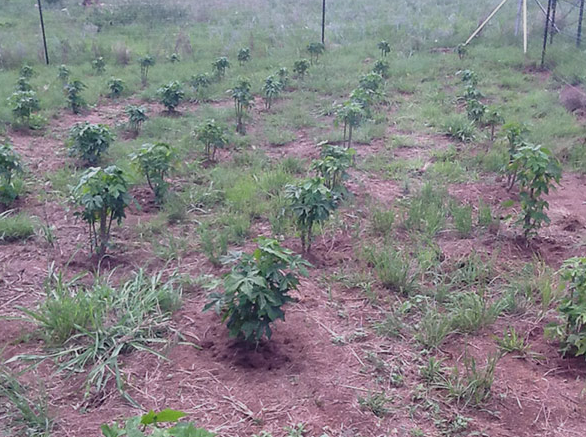
Spinach Trees
This succulent plant is indigenous to the Yucatan peninsula of Mexico.
It is a perenial so it produces spinach leaves all year round for several decades. The leaves are very delicious and about three times more nutritious than normal vegetable spinach.
There are now more than 1000 spinach trees on the C4L campus. So those who come to learn about growing it can take away a few cuttings. It grows from cutting, not seeds, much like cassava.
It is very tasty when prepared as a vegatable, or cooked as a bread, pastry, cake or cookie. This opens the door to varied job creation opportunities for youth.
At the moment, C4L provides cuttings to deacons of local churches who know which households are food-insecure. These homes are given cuttings to plant around the house, so that they can have a nutritional relish available to them at any time.
During Covid lockdown, C4L did bake spinach pies for the deacons to distribute to the poor.
Just as cassava has traditionally been regarded as a crop of the poor – not to be bought and sold but shared – we are treating tree spinach the same way.
Future Prospects
We do recognize wider potential in having these “mother trees” on the C4L campus.
In the past, C4L has blended some Entrepreneurship training with some very specific vocational training. In this case, tree spinach could offer a “value chain” that includes:
- Growing spinach trees
- Marketing leaves
- Baking
- Delivery to traders
- Marketing spinach bread, spinach pies and pastries, cakes and cookies
Tree Spinach has been one component of C4L’s Green Livelihoods programme for several years now. Click here to read a concept note on where this could go…
Vegetable Garden
In 2022, C4L expanded its outreach to poor families in nearby communities.
In partnership with a local church in White River, C4L set aside space on campus for a vegetable garden. The deal was that the church will buy ALL the produce from this garden, to give to the poor in its existing food assitance project.
Currently the church is providing dry rations, and wants to expand that to include fresh produce. So C4L is providing the land, water and seeds to make this happen.
